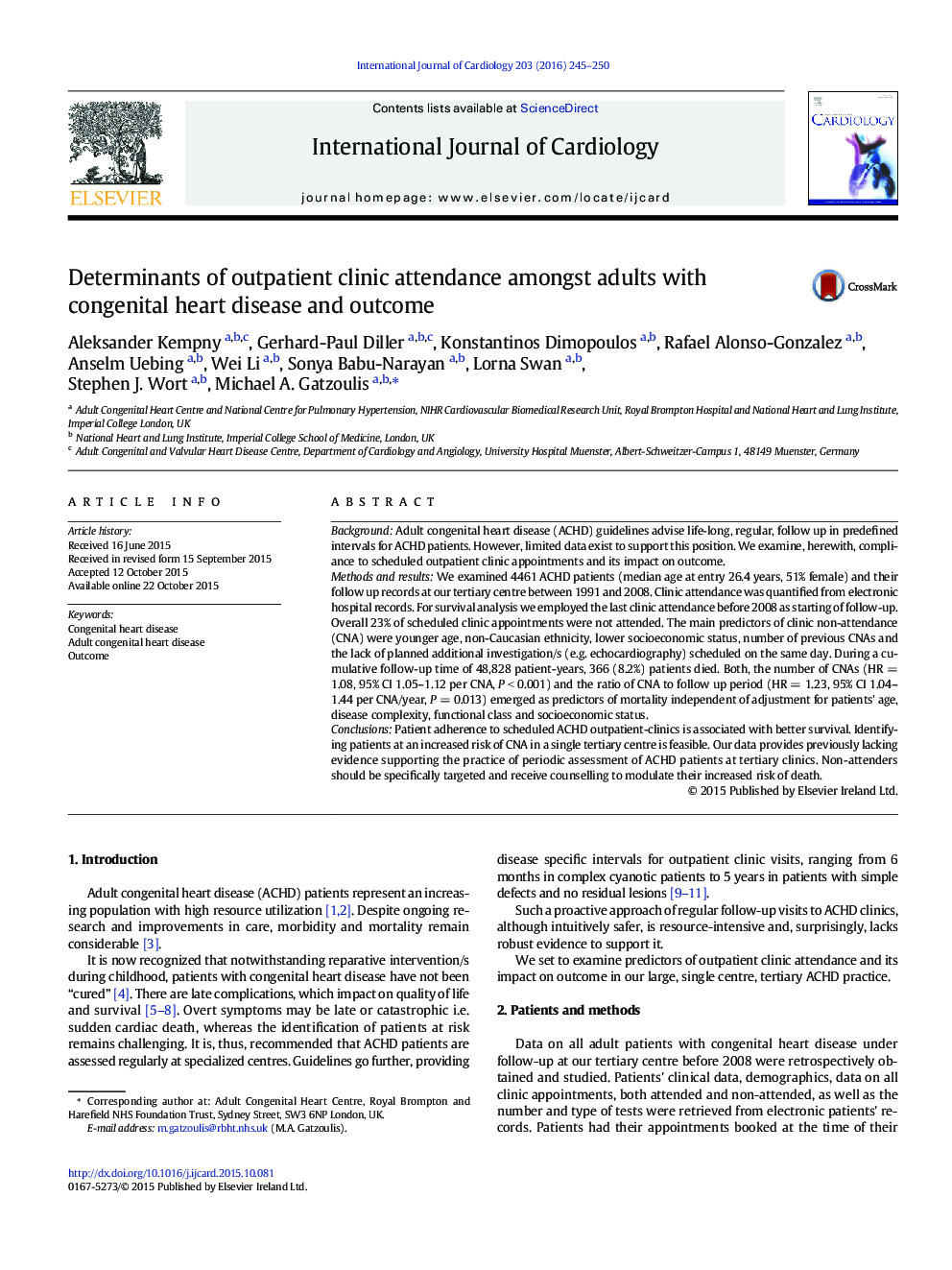| Article ID | Journal | Published Year | Pages | File Type |
|---|---|---|---|---|
| 5965590 | International Journal of Cardiology | 2016 | 6 Pages |
BackgroundAdult congenital heart disease (ACHD) guidelines advise life-long, regular, follow up in predefined intervals for ACHD patients. However, limited data exist to support this position. We examine, herewith, compliance to scheduled outpatient clinic appointments and its impact on outcome.Methods and resultsWe examined 4461 ACHD patients (median age at entry 26.4Â years, 51% female) and their follow up records at our tertiary centre between 1991 and 2008. Clinic attendance was quantified from electronic hospital records. For survival analysis we employed the last clinic attendance before 2008 as starting of follow-up. Overall 23% of scheduled clinic appointments were not attended. The main predictors of clinic non-attendance (CNA) were younger age, non-Caucasian ethnicity, lower socioeconomic status, number of previous CNAs and the lack of planned additional investigation/s (e.g. echocardiography) scheduled on the same day. During a cumulative follow-up time of 48,828 patient-years, 366 (8.2%) patients died. Both, the number of CNAs (HRÂ =Â 1.08, 95% CI 1.05-1.12 per CNA, PÂ <Â 0.001) and the ratio of CNA to follow up period (HRÂ =Â 1.23, 95% CI 1.04-1.44 per CNA/year, PÂ =Â 0.013) emerged as predictors of mortality independent of adjustment for patients' age, disease complexity, functional class and socioeconomic status.ConclusionsPatient adherence to scheduled ACHD outpatient-clinics is associated with better survival. Identifying patients at an increased risk of CNA in a single tertiary centre is feasible. Our data provides previously lacking evidence supporting the practice of periodic assessment of ACHD patients at tertiary clinics. Non-attenders should be specifically targeted and receive counselling to modulate their increased risk of death.
